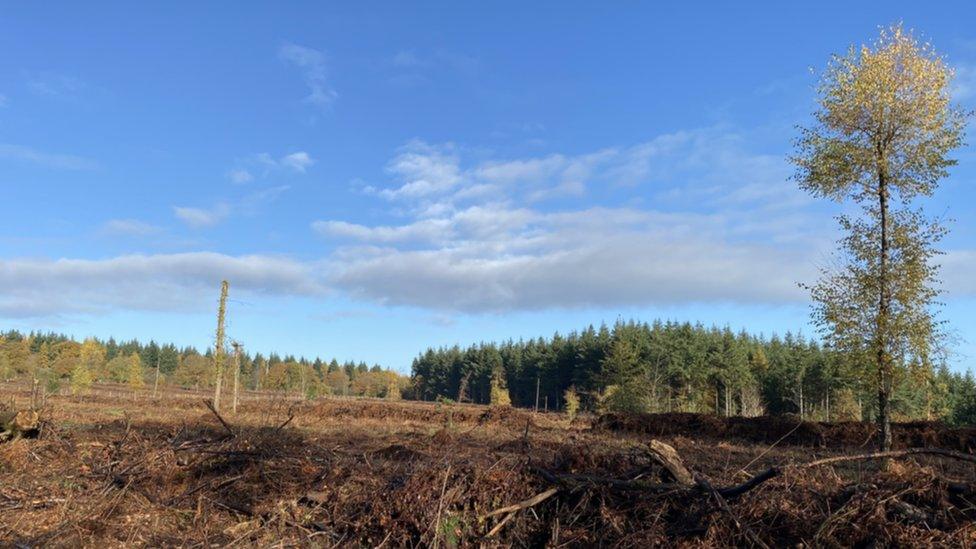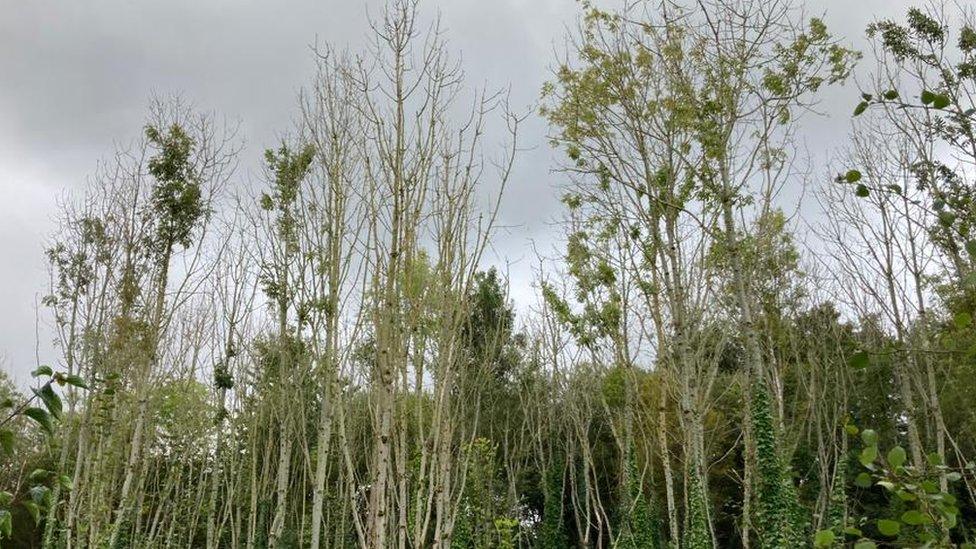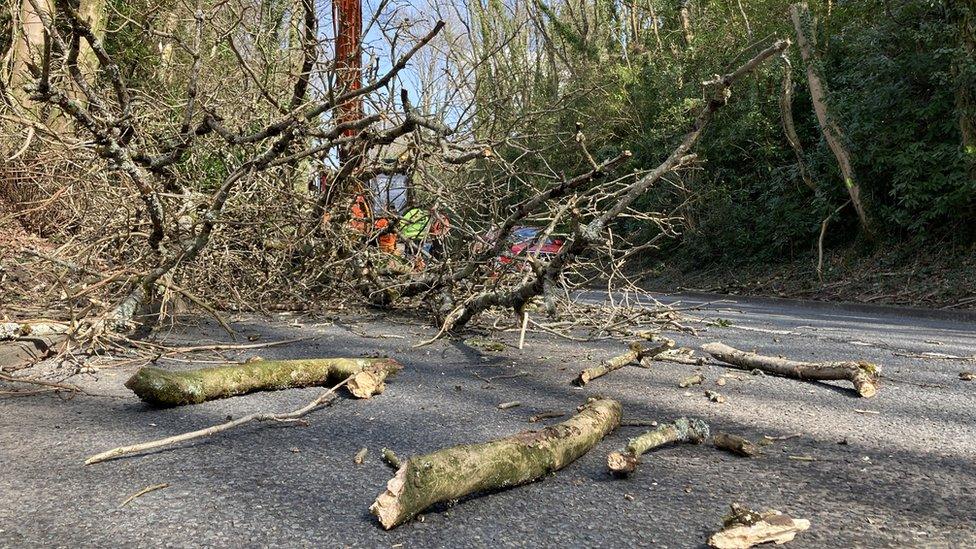Phytophthora Ramorum: Thousands of Forest of Dean trees felled
- Published

In the last five years about 56,000 trees have been felled in the Forest of Dean due to tree disease
Tens of thousands of trees are having to be cut down because of tree disease, Forestry England say.
In the last five years about 56,000 larch trees have been felled in the Forest of Dean in Gloucestershire due to Phytophthora Ramorum.
Forest managers said visitors can do their part in helping to stop the spread of the disease.
Tom Brockington from Forestry England said simple measures such as cleaning boots after a walk were vital.

Operations manager Tom Brockington said visitors could play their part in helping to stop the spread of the disease
He said the same goes for animal paws, buggies and bike tyres with mud on them.
The operations manager who works on the Our Shared Forest project - an initiative to reshape and redirect land management in the area - said the disease "can be transferred really easily" and had already made a "big impact" on the area so far.
'Felling sad but necessary'
"Having to fell trees before they reach maturity because of disease is always a sad sight; it disrupts our forest plans and is something our professional foresters never want to see," Mr Brockington said.

Forestry England said visitors should clean their boots, buggies and bike tyres after visiting in attempt to stop the spread of the disease
"However, it is necessary. We must comply with plant health notices to protect a woodland and the wider environment by containing a disease."Symptoms of the disease include areas of black "bleeding" on the trunk and withered and blackened leaves or needles - which lead to the dieback of the outer branches.
It can be spread in a variety of ways including from contaminated soils, water and on the wind.
Mr Brockington said: "We've lost 115 hectares of larch and sweet chestnut in the last five years."

Forester James Williams said he hopes the re-planting of 32,000 trees will help the forest re-grow
He urged the public to avoid transferring sticks, branches and bark from one woodland to another, in an attempt to avoid spreading the disease to other areas and residential gardens.
Forester James Williams, who works in East Dean, said while tens of thousands of trees have been felled due to the disease - which affects up to 150 species including oak and beech trees - they have managed to plant another 32,000 trees in the area to help the forest re-grow.
He said he hoped the re-planting of a mixture of different species of trees will "make this a really beautiful and long-term forest for people to enjoy".

Follow BBC West on Facebook, external, Twitter, external and Instagram, external. Send your story ideas to: bristol@bbc.co.uk
Related topics
- Published3 October 2022

- Published31 March 2022

- Published8 June 2014

- Published12 July 2012
